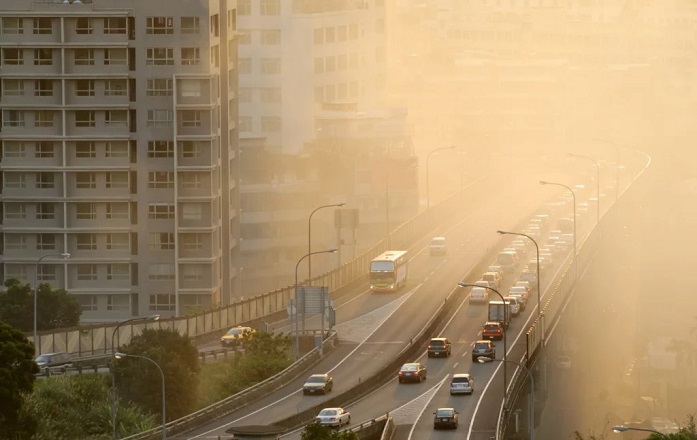Kittisak Meepoon Fact checked by:Thailand Medical News Team Nov 28, 2025 3 months, 3 days, 7 hours, 34 minutes ago
Medical News: Growing Concerns About Air Pollution and Exercise
A major new international study warns that while regular exercise is still good for you, long term exposure to polluted air can significantly weaken its protective effects. This
Medical News report draws from work by researchers at University College London, National Chung Hsing University in Taiwan, the UK Biobank team, institutions in Denmark, China, Australia and the United States. More than 1.5 million adults were tracked for over a decade to understand how fine particulate pollution known as PM25 affects the life-extending benefits of physical activity.
 New global research shows that polluted air sharply reduces the life extending benefits of regular exercise
New global research shows that polluted air sharply reduces the life extending benefits of regular exercise
PM25 particles are extremely small and can enter the lungs and even the bloodstream. When yearly averages rise above 25 micrograms per cubic meter the study found that the health gains of exercise begin to drop sharply. This is especially worrying because nearly half of the world’s population lives in areas that exceed this threshold.
What the Researchers Discovered
The team combined seven large cohort studies and also reanalyzed raw participant data from three of them. Normally people who engage in at least two and a half hours of moderate to vigorous exercise a week can reduce their risk of death by about 30 percent. However, when these active individuals lived in polluted areas above 25 μg/m³ the protection fell to roughly 12 to 15 percent. At even higher pollution levels above 35 μg/m³ the benefits weakened further and in the case of cancer related deaths the advantages of exercise became unclear.
The researchers also examined a wide range of PM25 levels. In cleaner environments below 10 μg/m³, exercise kept the hazard ratios around 0.30 which reflects strong protection. But as pollution rose to 35–50 μg/m³ the hazard ratios climbed close to 1.0 meaning the benefit almost disappeared. These patterns held across men and women, older adults and people with existing cardiovascular conditions.
Why Pollution Cancels Out Benefits
Scientists believe PM25 triggers chronic inflammation, damages blood vessels and increases stiffness in arteries. These effects are known drivers of heart disease and cancer. When the body is under constant stress from dirty air the positive biological changes triggered by physical activity are partly overshadowed.
Even so the researchers stress that exercise still offers some benefit and they encourage people not to stop being active. Instead, they recommend monitoring air quality, choosing cleaner routes and adjusting intensity during high pollution days.
Study Limitations and Final Takeaway
The research team noted that most included studies came from high income countries, and data from regions with extreme pollution above 50 μg/m³ remain limited. Indoor air quality and diet were also not measured which may slightly affect results. Despite the
se gaps the evidence is strong that cleaner air greatly enhances the health value of exercise. The conclusion is clear and important: exercise helps people live longer even in polluted areas but the protective effect is significantly stronger when the air is clean, reinforcing the urgent need for global pollution control and better public health planning.
The study findings were published in the peer reviewed journal: BMC Medicine.
https://link.springer.com/article/10.1186/s12916-025-04496-y
For the latest on Air Pollution and adverse health effects, keep on logging to Thailand
Medical News.
Read Also:
https://www.thailandmedical.news/news/south-korean-researchers-find-that-thyme-extract-shields-lungs-from-air-pollution-damage
https://www.thailandmedical.news/news/air-pollution-particles-can-sneak-into-the-brain-and-cause-hidden-damage
https://www.thailandmedical.news/news/thailand-medical-study-finds-that-herbal-extracts-from-blue-trumpet-vine-and-ginger-can-protect-against-air-pollution
